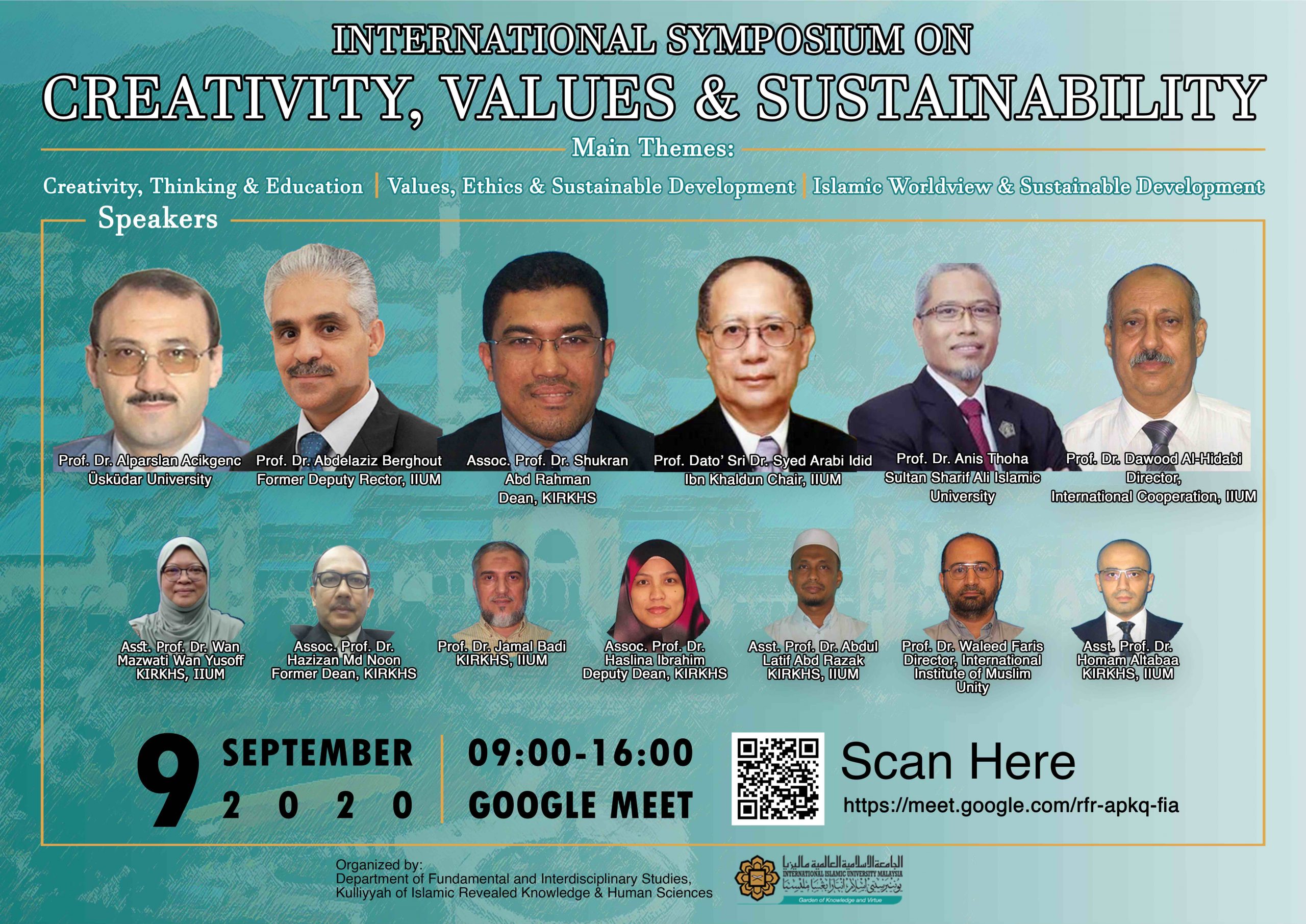By Iylia Marsya Iskandar
GOMBAK, 10 September 2020: In light of the Sustainable Development Goals (SDG) 2030 outlined by the United Nations, universities are expected to play impactful roles to change, improve and develop the community by embarking on academic activities which address the needs and issues in the society.
In making the call, the Dean of Kulliyyah of Islamic Revealed Knowledge and Human Sciences (KIRKHS), Assoc. Prof. Dr. Shukran Abdul Rahman highlighted that the establishment of higher education is to produce, reproduce, preserve, systematise, organise and transmit knowledge to support and substantiate the development of the society and nation and to ensure that the knowledge is relevant and be of use to the society.
Dr. Shukran was giving his keynote speech titled “Higher Education for Sustainable Development Goals: Nurturing Community-orientated Holistic Scholars and Students for Sustainable Futures” at the International Symposium on Creativity, Values and Sustainability yesterday (9 September).
The Dean said: œEducation is central to the SDG, and has been acknowledged as one of the most effective mechanisms to cultivate sustainable development. In supporting this agenda, our academic activities should involve the extension of services to the community, all must be to the perpetual benefit of the current and future society.
Dr. Shukran explained that the idea of sustainable development reinforces the essentiality to educate the current generation to avoid environmental degradation and other activities which aim to nurture long-term stability of the economy and environment.
“Environment in this context does not only refer to trees and the surroundings but also humans. In doing so, all citizens, regardless of their gender, socio-economic status or ideology, should have equal access to a quality higher education.”
He further said that the achievement of SDG in higher education institution warrants for the strengthening of three main functions: intellectual functions, social functions and educational functions.
œThe three main functions stressed, but not limited to the areas of adding the breadth and depth of knowledge, communicating knowledge to the general public and producing holistic talents that are of high quality, Dr. Shukran added.
In summing up Dr. Shukran pointed out that universities should serve as the reference centre that addresses the solutions to social issues. Any academic forum, such as this seminar, round table or conference should address the emerging issues in the society.
In response to a question on the lacking component in universities in adopting sustainability raised in the Question and Answer session, Dr. Shukran said that there is a lack of awareness among the university communities itself on the functions of university in the community.
œWhen we talk about community engagement, people are still thinking of doing community service instead of bringing people to the university for mutual benefit. We must œacademicise academics so they know the real functions, position, tasks, duties and responsibilities in the context of the institution that they are working with, Dr. Shukran further explained.
He said: œWe must tell our students that they dont go to university the same way they come to school, in schools they have homework and now they have assignments. Assignments should not be treated as homework, rather, assignments are knowledge generating activity. Together, we must educate our colleagues and students on the real role of universities and the real functions of academic members.
The one-day symposium was organised by the Department of Fundamental and Inter-Disciplinary Studies (FIDS), KIRKHS, IIUM with 12 paper presentations from academicians from Malaysia and overseas, all of which are linked to IIUM.
Earlier in his opening remarks, the Co-Chairperson of the symposium, Prof. Dr. Abdelaziz Berghout pointed out that the Rector of IIUM, since his arrival has been all on sustainability and currently looking at sustainability at a different perspective, which is religiosity and Islamisation.
The symposium was attended by scholars, lecturers and students from all around the world through Google Meet.***
